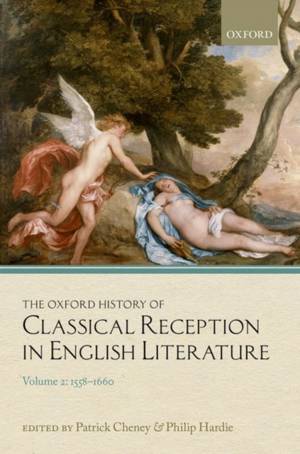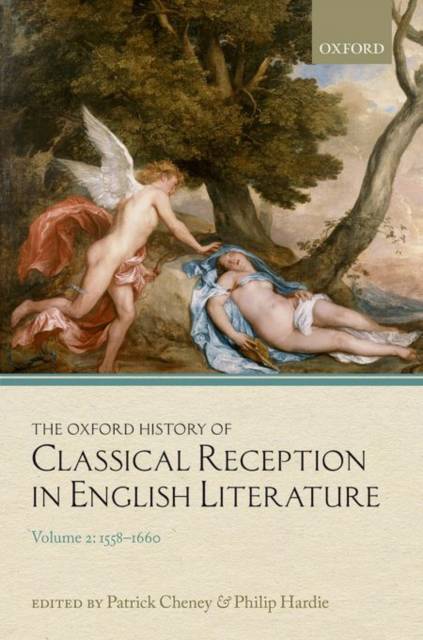
- Afhalen na 1 uur in een winkel met voorraad
- Gratis thuislevering in België vanaf € 30
- Ruim aanbod met 7 miljoen producten
- Afhalen na 1 uur in een winkel met voorraad
- Gratis thuislevering in België vanaf € 30
- Ruim aanbod met 7 miljoen producten
Zoeken
The Oxford History of Classical Reception in English Literature, Volume 2
1558-1660
€ 461,95
+ 923 punten
Omschrijving
The Oxford History of Classical Reception (OHCREL) is designed to offer a comprehensive investigation of the numerous and diverse ways in which literary texts of the classical world have stimulated responses and refashioning by English writers. Covering the full range of English literature from the early Middle Ages to the present day, OHCREL both synthesizes existing scholarship and presents cutting-edge new research, employing an international team of expert contributors for each of the five volumes. OHCREL endeavours to interrogate, rather than inertly reiterate, conventional assumptions about literary 'periods', the processes of canon-formation, and the relations between literary and non-literary discourse. It conceives of 'reception' as a complex process of dialogic exchange and, rather than offering large cultural generalizations, it engages in close critical analysis of literary texts. It explores in detail the ways in which English writers' engagement with classical literature casts as much light on the classical originals as it does on the English writers' own cultural context. This second volume, and third to appear in the series, covers the years 1558-1660, and explores the reception of the ancient genres and authors in English Renaissance literature, engaging with the major, and many of the minor, writers of the period, including Shakespeare, Marlowe, Spenser, and Jonson. Separate chapters examine the Renaissance institutions and contexts which shape the reception of antiquity, and an annotated bibliography provides substantial material for further reading.
Specificaties
Betrokkenen
- Uitgeverij:
Inhoud
- Aantal bladzijden:
- 650
- Taal:
- Engels
- Reeks:
Eigenschappen
- Productcode (EAN):
- 9780199547555
- Verschijningsdatum:
- 29/12/2015
- Uitvoering:
- Hardcover
- Formaat:
- Genaaid
- Afmetingen:
- 236 mm x 168 mm
- Gewicht:
- 1360 g

Alleen bij Standaard Boekhandel
+ 923 punten op je klantenkaart van Standaard Boekhandel
Beoordelingen
We publiceren alleen reviews die voldoen aan de voorwaarden voor reviews. Bekijk onze voorwaarden voor reviews.










